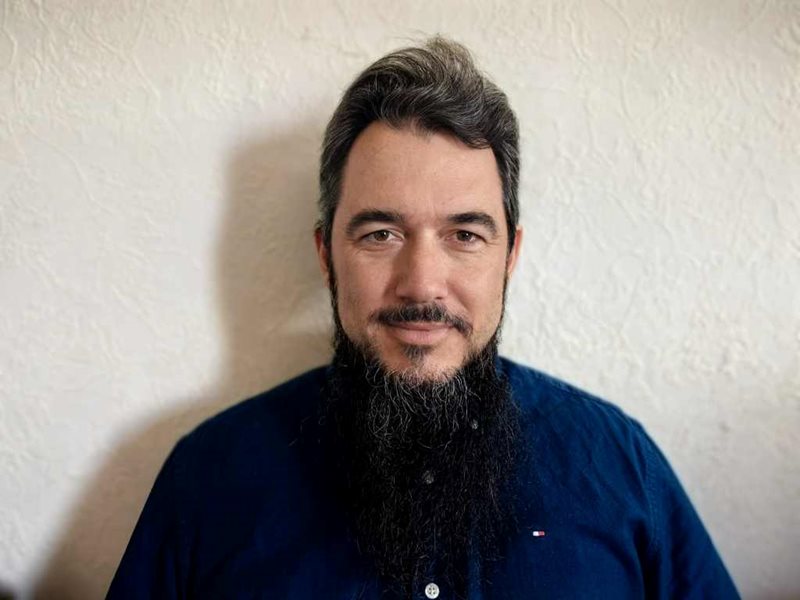On the way to senior leadership – how can a mentor help you achieve your goal?
_20240418130418_0.jpg)
Edit Bartha works as a key account manager and Péter Verebélyi works – or worked until recently – as a business line manager at Johnson&Johnson, a manufacturer of medical devices. When Peter joined the company, his first task as a manager was to fix a team that was falling apart, recruit new people, and motivate and put the team on the growth path.
‘This would have been an almost impossible mission without completing the Master of Business Administration programmes,’ says Peter, who has completed several management programmes at Corvinus University.
Edit applied for admission to the Corvinus Executive MBA (dual degree in partnership with MSM – Maastricht University) programme on Péter’s advice, and Péter has been a kind of mentor and support for her throughout the two-year programme, which is now coming to an end: ‘I graduated from a university in Romania, and that programme provided me only with the very basics of economics. When I saw the subjects of the entrance exams for the EMBA course, my first reaction was that I could never make it. But Peter told me that I could surely do it and that I could not give it up so easily. He helped me prepare for the entrance exam, too.’ adds Edit.
For Edit, there were several reasons why she needed a fresh professional impulse, which Peter noticed: ‘when I met Edit, I could immediately see that she was a great professional, but she was a bit stuck in what she was doing and she was starting to show signs of burnout. I told her that I was in the same situation when I enrolled in the Corvinus EMBA programme and that it turned out to be one of the best decisions of my life, it gave me so much extra energy, strength and professional perspective,’ explains Péter, who specifically recommended the Corvinus MBA to Edit from the MBA programmes available on the domestic market.
‘I would have gone for the easier resistance myself,’ adds Edit with a smile, ‘but Peter wouldn’t let me. He told me that if I was going to do it, it was worth putting the energy in and going for a more serious English-language MBA programme providing an international degree.’
As the Executive MBA programmes are for already experienced managers, Peter believes that the workshop nature of the courses conducted in small groups and the individual mentoring are of paramount importance. Unlike the basically theoretical EMBA programmes available on the domestic market and in many cases running with 100-150 students, the Corvinus programme has maximum 40 students per year. Students admitted to the programme will receive the necessary theoretical background, too, but the focus in classes will be on solving complex case studies, personal mentoring and working on project tasks in groups. The end-of-semester grades are also awarded partly for group work and partly for individual papers to be submitted. One of the important parts of the programme is an intensive two-week summer visit to Maastricht University, where students will gain a truly deep insight into a chosen segment of the business world.
Last summer, for example, Edit took part in the Entrepreneurship specialisation in the Netherlands: ‘Maastricht was far more than a great social experience, as in two weeks we were guided through all the important steps of business planning, from the idea to development. I will graduate from Corvinus in two months, and I am writing my thesis on a business plan of an entreprise.
One of the great advantages of the Corvinus EMBA programme is that it provides practical knowledge that can be applied in business from day one. Both Edit and Peter highlighted the helicopter view they had acquired during the programme, i.e. that they had gained insight into all relevant segments of company operations, from HR to finance and legal issues, and that allowed them to get a more complex picture of their own workplace. In addition, they both stressed the advantage of having peers from a wide range of business backgrounds, which means that the composition of students is usually fairly diverse from professional point of view: ‘an HR person, for example, starts to solve a problem from a completely different perspective than a business or finance manager. As a result, we are able to show each other completely new perspectives and ways of thinking in group tasks,’ explains Péter, pointing out the benefits of a diverse professional background.

Edit adds that the programme has allowed her to strongly develop her own personal leadership, too: ‘Under the Personal Leadership Development Journey, we received personal mentoring throughout the programme. During the two years I had two mentors, both of whom I owe a lot to, because they were very good at gently but accurately pointing out the areas where I needed to improve. They have taught me self-development techniques that I can use not only in business but also in my personal life.’
Both Peter, who graduated from the Corvinus Executive MBA programme a few years ago, and Edit, who will graduate from the Corvinus Executive MBA (dual degree in partnership with MSM – Maastricht University) in a month or two, would recommend this program to any manager looking for professional development, personal leadership development and new professional inspiration. In addition, Péter adds that he still maintains a very close relationship with the colleagues he met at the Corvinus EMBA programme: ‘for me, this group is still an active network, to whom I can turn for advice about any kind of professional challenge.’